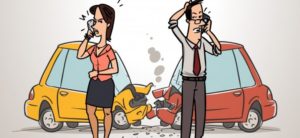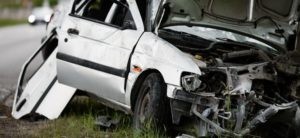Understanding Washington’s Family Car Doctrine

We’re all familiar with the archetypal scenes of the father giving his young son a hard time before reluctantly tossing over the keys to the family car. These scenes draw on the concept of earned trust, and are usually jovial and lighthearted in nature. However, relinquishing the family keys could have real consequences, for all involved.
Under Washington law, whenever there is a serious car accident case in which the at-fault party was driving a vehicle that belonged to a parent or other family member, that vehicle owner may be subsequently held liable for the damages caused by the accident. This is known generally as the family car doctrine.
Determining Whether or Not Family Car Doctrine Applies
For a free legal consultation, call (725) 900-9000
Whenever a judge, jury, or arbitrator is debating whether or not the family car doctrine applies to a given accident, there are multiple components that must be weighed. Courts will consider: who is named on the title of the vehicle; who bought or currently makes payments for the vehicle; who pays for the car’s gas and maintenance; even the general purpose or intent the owner had for that vehicle.
There is no set formula or standard criteria for determining whether or not the provision should be applied. These cases are very subjective, and are often passionately debated. The parameters of car ownership and liability can get very muddy; let’s use a hypothetical example to highlight these complexities.
Click to contact our personal injury lawyers today
Say that you are involved in an accident that is caused by John. The car John was driving was bought and owned by his parents for many years but John recently took over ownership and his name is listed on the title. However, John lives at home and his parents still occasionally give him money for gas and repairs. Should the parents still be considered the true owners and therefore be held responsible? Should John be considered the owner because of the title or does he need more proof of ownership?
These are the questions that courts will debate– for the best chance of success, accident victims should always seek the help of an experienced motor vehicle accident attorney in order to maximize the chances of recovering full compensation.
Why Family Car Doctrine is Important
Complete a Free Case Evaluation form now
The reasoning behind the state’s family car doctrine is to add another layer of protection for accident victims who are injured by those who have limited coverage or none at all. Due to the fact that a majority of drivers who are driving a family-owned car are between the ages of 16 and 21, chances are they will not personally have enough coverage to compensate you for significant injuries and damages.
Thus, the family car provision allows for victims to sue the vehicle’s owners, who will generally have a higher level of coverage or the ability to obtain better coverage. Essentially, it is another version of underinsured or uninsured motorist (UM/UIM) coverage.
If successfully applied, accident victims may be able to recover additional compensation from the owner of the vehicle, such as medical reimbursement, vehicle repairs, and even significant personal assets, if they exist and the case permits. However, as mentioned above, these are complicated cases and just because the family purpose provision exists does not guarantee that it will be applied.
Nevertheless, parents and vehicle owners in Washington should always take caution in relinquishing their keys, as family car doctrine makes it so that potential accident liability is always a possibility.
Contact Motor Vehicle Accident Attorneys
If you were injured in an accident that you believe should qualify under a family car claim, consider contacting the Washington motor vehicle accident attorneys from Van Law Firm right away. As subject matter experts, we can help you navigate through the process of any claim throughout the state.
Call (360) 200-0000 Call Recording Disclaimer now for a free consultation. We’re standing by to help around the clock, and with over 500 5-star reviews so far, it’s easy to see that helping people is what we’re good at– when can we help you?
No obligation consultations are always free.
Let Us Help You! Call Now: (725) 900-9000


